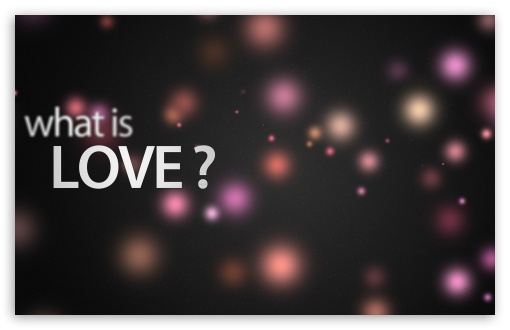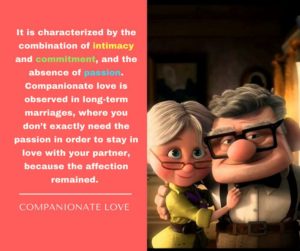 Most of us, in the June of our lives, have experienced the blissful feeling of ‘falling in love’. The stress of everyday living suddenly vanishes, time seems to stop and the only thing that matters is closeness to the beloved. However, is that really love? For if it is, then why is it regularly so transient, so temporary. There are childhood romances that continue for a lifetime, and then there are some that fade out over few years. How do we distinguish between genuine love and infatuation?
Most of us, in the June of our lives, have experienced the blissful feeling of ‘falling in love’. The stress of everyday living suddenly vanishes, time seems to stop and the only thing that matters is closeness to the beloved. However, is that really love? For if it is, then why is it regularly so transient, so temporary. There are childhood romances that continue for a lifetime, and then there are some that fade out over few years. How do we distinguish between genuine love and infatuation?
Most of us, in the June of our lives, have experienced the blissful feeling of ‘falling in love’. The stress of everyday living suddenly vanishes, time seems to stop and the only thing that matters is closeness to the beloved. My own experience as a starry eyed teenager was no different. Life revolved around just catching a glimpse of the beloved, and, I swear, her one smile was infinitely more important than all material possessions. Hours really flew by when we were together, and I – otherwise ‘creativity challenged’ – actually gifted her more than a thousand cards, most handwritten! Indeed, we were ‘madly in love’.
Then… we got married. And have been so for the last twelve years. And we can now empathize with Erich Fromm: “Love is perhaps the only activity which is started with such tremendous hopes and expectations, and yet, which fails so regularly!”
Well, jokes apart, we are still in love. But we often wonder, isn’t this a ‘very different love’ than being ‘madly in love’. Why is the sight of the same beloved, in itself, not the ultimate panacea as it was before, and why has the stress of everyday living – the towels, the spending, the habits, the personal space, the relationship with in-laws – started showing its ugly face once again? These challenges were there even during courtship, but somehow were ignored, just didn’t matter. It is as if we were simply oblivious to everything that could cause stress. And it resurfaces after years of staying together.

Psychologists like Scott Peck distinguish between ‘genuine love’ and ‘falling in love’. In typical Darwinian style, they label the latter ‘a trap genes lay to make procreation easier’. And sure enough, Dr. Helen Fisher suggests that there are real ‘pleasure chemicals’ getting secreted and actually influencing (or ‘fooling’) our senses: Dopamine in the mid-brain (activating feelings of euphoria, obsessive thinking and intense longing) and Norepinephrine in the blood stream (causing butterflies in the stomach, paleness, increased pulse). While we profess our love for the beloved and our desire to get the moon for her, it is actually our selfish desire, in this case pseudo-sexual, that our body is trying to meet.
This is not to say the ‘magical feeling of love’ is wrong. To the extent something gives us joy, ideally without making anyone else worse off, how can it be wrong? The ‘intense and passionate feeling’ we may have for someone or something is a wonderful emotion and those goose pimples and deep longing increases the excitement, even if temporarily, in an otherwise difficult life. Krishna taught us that our body and its feelings should be celebrated instead of being ashamed of.
But, apart from these feelings, Genuine Love may have four defining traits:
- True Love is a collapse of ego boundaries, where the lover and the beloved become one. ‘Love means never having to say sorry’, the unsaid words and feelings are easily understood by both sides. A smile conveys all that has to be said and those in love could spend hours together without talking and yet understanding what the other is wanting to say. There is no justification, no worry on what the other person would think, no need for any explanation, since the two are emotionally (and spiritually) one.
- We focus on the development of the individual – like a parent’s love for the child, the elder sibling’s love for the kid, the teacher’s love for the student or the love for the spouse after the ‘feeling’ has run its course. We try to meet the needs of the beloved, and not our own needs, often at significant cost to us. The instinct of love at the first sight of the child is usually replaced by a more stable love, but only after years of putting the child’s interest above our own. This is an acid test: true love is self-less, and our own needs must come a distant second.

- We respect, very often celebrate, the individuality of the other person. We accept that the other person has right to his/her own views, which may be different from ours. It follows then that dependency, which tries to inhibit freedom rather than liberate and celebrate free will, is also not love. Dependent marriages, like we often see in India, maybe lasting and secure but this security is purchased at the price of freedom and the relationship serves to retard the growth of the individual. The over-protective mother who continues to shield her adult son ‘from the ways of the world’ may be guided more by her own insecurities and biases and her need to strengthen the attachment, than her son’s real (and long-term) welfare. It is very easy to condone such retarding behavior as ‘innocent love’, but the driving force in this case is often the mother’s (suppressed and subconscious) need to have someone dependent on her. The unintended long term consequences of such a dependency can be disastrous.

- It requires long term commitment. The ‘feeling of love’ – while blissful and completely natural – is often transient and starts waning when the underlying instinct, often sexual consummation, is fulfilled. It may (or may not) then grow to a more mature love, with deep and long lasting commitment. So many young boys and girls profess their ‘everlasting love’ for each other at age 16, only to move on to the next partner within 2-3 years. Most of them are not trying to cheat, but just do not understand that the feeling they are confusing as ‘love’ is, by definition, infatuation. There will be universal conflicts in any relationship – other distractions, dependency and ‘space’, my relatives and your relatives, ‘differences’ and acceptance – which can be resolved only with the comfort that the obvious tiffs over these issues will in itself not destroy the relationship. There will still be fights over issues, but not fights over the person, and certainly not fights over ‘should this relationship continue’.
Love then, like Dr. Stephen Covey says, is a verb… an action: we choose to love someone. It is also relatively easy to satisfy the other person’s material needs and we all are guilty of showering gifts on our beloved but keeping them neglected emotionally. Gulzaar’s daughter mentioned in her memoirs that her fondest memories were of the ‘brand new poetries’ Gulzaar saab wrote specially for her on each birthday. And we are amazed by the gift Nehru gave to his daughter – one letter every day for years, outlining practically the entire history of the world. That requires effort and time, and like all of us lost in this ‘mart of economic strife and gain’, I am often guilty of instead settling for the relatively easier nicely packaged gift from the local Archies.
See, beyond ‘love the feeling’ lies ‘love the action’, and that requires effort and discipline…
– Nishant Saxena



 This information will never be shared with third party
This information will never be shared with third party